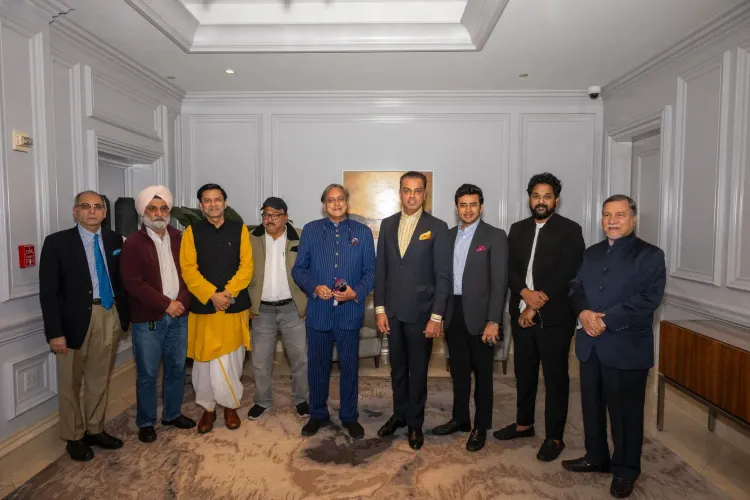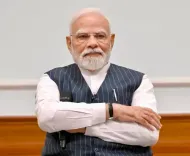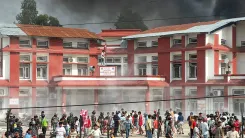What is Operation Sindoor and Its Significance for India?

Synopsis
Key Takeaways
- India's Operation Sindoor aims to counter cross-border terrorism.
- Multi-party delegations highlight a united front against terrorism.
- Focus on Pakistan's ISI and its support for terror groups.
- India's commitment to zero tolerance for terrorism remains strong.
- Future relations with Pakistan will center on terrorism and PoK.
New Delhi, July 4 (NationPress) The initiative by the Modi administration to deploy seven multi-party delegations to various global capitals aimed to elucidate India’s stance on Operation Sindoor. This operation was initiated in response to the terrorist assault in Pahalgam on April 22, fulfilling a crucial strategic need to contextualize the India-Pakistan military tensions exacerbated by Pakistan-sponsored terrorism and the subsequent declaration of a 'ceasefire' between the nations from India's perspective.
The delegations were tasked with presenting the fundamental Indian argument that the cross-border terrorism, long recognized as stemming from Pakistan, served as the catalyst for India's retaliatory measures.
The primary goal was to alert the international community regarding the persistent terror infrastructure in Pakistan and its global repercussions. These delegations were expected to debunk Pakistan's claims of being a terrorism victim, highlighting instead that the Pakistani ISI has sheltered extremist groups, such as Al Qaeda and ISIS, alongside terror factions like Hizbul Mujahideen and Lashkar-e-Taiba, which have historically aligned with Western interests.
This distinction was strategically advantageous for Pakistan when the U.S. initially categorized terrorists as 'good' or 'bad' prior to the exposure of Pakistani duplicity following the killing of Osama bin Laden.
The delegations, primarily led by opposition leaders, emphasized three critical points: India’s surgical strikes were conducted on nine identified terror bases without targeting military or civilian areas, and that Pakistan only demonstrated its collaboration with terrorists by escalating tensions via drone and missile attacks on Indian soil.
In a legitimate military response, India targeted and damaged several of Pakistan's air bases, prompting the beleaguered Pakistani army to seek intervention from the Trump Administration for a ceasefire, which India, as a peace-loving nation, accepted.
India's Foreign Secretary, Vikram Mistry, effectively communicated that India's strike on the Jaish-e-Mohammad facility in Bahawalpur should be viewed in light of the murder of Wall Street Journal reporter Daniel Pearl. This aligns with the growing convergence between India and the U.S. against terrorism, especially as President Donald Trump had unequivocally condemned 'Islamic Terrorism.'
Critics of Operation Sindoor assert that Prime Minister Modi acted on Trump's directive regarding the ceasefire, yet accepting a pause in military hostilities exemplified a mature diplomatic strategy from India.
The diplomatic outreach to 33 nations was intended as a concerted effort to globally isolate Pakistan by revealing its sustained support for cross-border terrorism through evidence presented to foreign legislatures, think tanks, and the media.
The delegations included 51 political leaders—comprising mainly MPs and Ministers, as well as former diplomats—visiting countries that are current or future members of the UN Security Council to counter any potential 'false narratives' propagated by Pakistan.
The overarching message of 'zero tolerance against all forms of terrorism' was effectively communicated, expecting no dissent on this principle. The delegations aimed to unveil the truth about Pakistan's support for terrorism, which was the driving force behind India's action through Operation Sindoor.
The initiative sought to reflect a national consensus on the threat of terrorism facing India. Meanwhile, the Congress party expressed strong opposition to naming Shashi Tharoor as the leader of a delegation to a significant country like the U.S., accusing the ruling party of 'playing games' given that Tharoor was not included in the Congress's initial list. This stirred domestic political tensions but quickly subsided.
The delegations were set to engage in various global regions to intensify pressure on Pakistan for its support of terrorism against India, emphasizing the need for accountability for the Pakistani military. While affirming India's commitment to combat terrorism and highlighting the 'new normal' of responding with military strikes on terror infrastructure, as demonstrated by Operation Sindoor, the delegations underscored that India would not be swayed by any nuclear threats from Pakistan.
The delegations also pointed out the international community's inadequate response in holding the Pakistani military and ISI accountable for both the 2008 Mumbai attack and the 2019 Pulwama suicide bombing, despite substantial evidence provided by India in both instances.
These delegations undoubtedly exhibited India's united front behind the government on terrorism. The rare display of political unity among the delegations is anticipated to send a clear message that on matters of foreign policy and national security, India stands united, and the principle of zero tolerance for terrorism transcends political divisions within the country. The effects of this diplomatic initiative will be assessed in the future.
The terrorist incident targeting tourists in Pahalgam, where 28 Hindus were executed after their religious identities were confirmed, was clearly a malicious strategy by the Pakistan army-ISI nexus aimed at destabilizing India internally.
Pakistan's army chief, Gen. Syed Asim Munir, had recently expressed hostility against India, stating that 'they were not Hindus,' which contributed to rising communal tensions. The military's decisive role was evidenced by Gen. Munir's promotion to Field Marshal amid the heightened tensions following the Pahalgam incident.
Additionally, Pakistan's strategic pact with China emerged prominently during the military conflict with India triggered by the events in Pahalgam.
A positive outcome after the announcement of the ceasefire was the establishment of what can be termed the National Security Doctrine by PM Modi in his address to the nation on May 12. The Prime Minister articulated that any future terror attack on India from Pakistani soil would be classified as an 'act of war' and would be met with appropriate military response. He asserted that India would not be deterred by any nuclear threats from Pakistan during such retaliatory actions. Furthermore, he indicated that future discussions with Pakistan would solely focus on cross-border terrorism and Pakistan-occupied Kashmir (PoK), reiterating India's stance that 'talks and terror do not coexist' and that the only agenda concerning Kashmir is the return of PoK to India.
The Prime Minister implied that Operation Sindoor was merely paused and that India would maintain the suspension of the Indus Water Treaty since 'blood and water cannot flow together.' The key takeaway is that India must remain fully prepared for any further provocations from Pakistan.
(The author is a former Director of the Intelligence Bureau)








